Healthcare Sector Down after News on Another Reform

5 minutes for reading
The US will be electing president in 2020, but the candidates-to-be are already talking actively, if not aggressively; one of such speeches tore down the entire sector.
Attitudes towards health insurance in USA
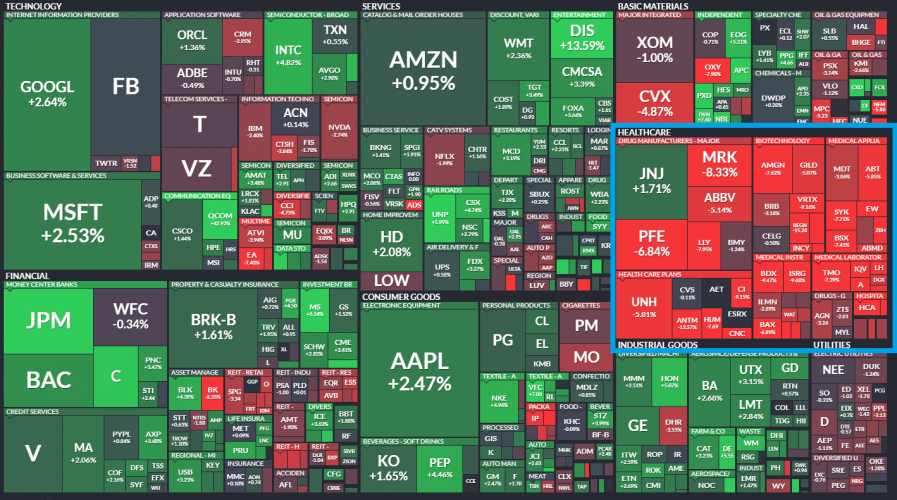
The healthcare is likely to become the sector in question the election campaigns will be based upon. What then happened and why does it need any reforms, shortly after Barak Obama had already run them?
The US is a country where people work a lot in order to make their dreams come true. If you fall ill before you start earning a fair amount of money, though, you may get into trouble; not all are able to get rid of debts after getting sick.
Before Obama's reforms, health insurance was not compulsory, and those with low income were not that willing to get that insurance. When they finally changed their mind, the insurance providers often refused to provide them with the insurance policy, which could turn the entire life of a person into a big trouble. Without insurance, you can't get into a hospital, but at the same time you can't get the insurance, as you are already ill, and perhaps severely so. With no social coverage either, such a person can either leave the US and try to get treatment elsewhere, or just hope for the better, waiting for the disease to get cured by magic.
Middle class people can afford a good insurance and nice medical service, but that's not enough, as some policies cover just basic things. If a serious or complicated disease has been diagnosed, you can only be saved with an all-inclusive insurance, which is accessible to rich folks only.
This was so much of a problem even back in the 90s, when Bill Clinton attempted to run a reform, but failed to do so. By the time Obama became president, 47M people out of 300M in the US had no health insurance, while 50M had only the minimum coverage, with the insurance price getting up by four times from 2000 to 2008.
Whats wrong with the US healthcare system?
The US healthcare system is decentralized, which boosted the number of middlemen and, subsequently, the insurance price, while the drug prices are not regulated by anyone. The service cost per patient in the US is a few times higher than in many other countries, while the quality is identical or even worse. The exact cost is unknown because of too many intermediary service providers, but the point is the end-customer is the one who bears all those costs.
Meanwhile, the pharma companies increase drug prices to earn billions of dollars out of it, and the healthcare sector employees have lobbies in the government, which prevents the president from running a comprehensive reform.
Thus, all Obama could do was introducing compulsory medical insurance and supporting economically disadvantaged and retired people. This was good both for the insurance companies, where the number of clients increased, and for the physicians that got more paid work to do, while the pharma did not suffer at all. Trump, however, did not like this overall positive reform and said he was going to replace Obamacare with his own one. He was still unable to develop a viable alternative option and ended up changing a few things in the existing system, thus making life of people over 50 a bit tougher.
Pressure on the UnitedHealth Group
Now, quite unexpectedly, Bernie Sanders comes in with his own project. He suggests abolishing the compulsory insurance, with the government paying all patients' costs. The government is also supposed to determine the prices for all medical services.
In order to make this work, Sanders says, one has only to increase taxes. This resembles very much the socialist fair money allocation concept, although socialism is much criticized in the US.
Sanders' words hit UnitedHealth Group (NYSE: UNH), the top US medical insurance company, badly, the latter losing around $30B in market cap in just a few days.
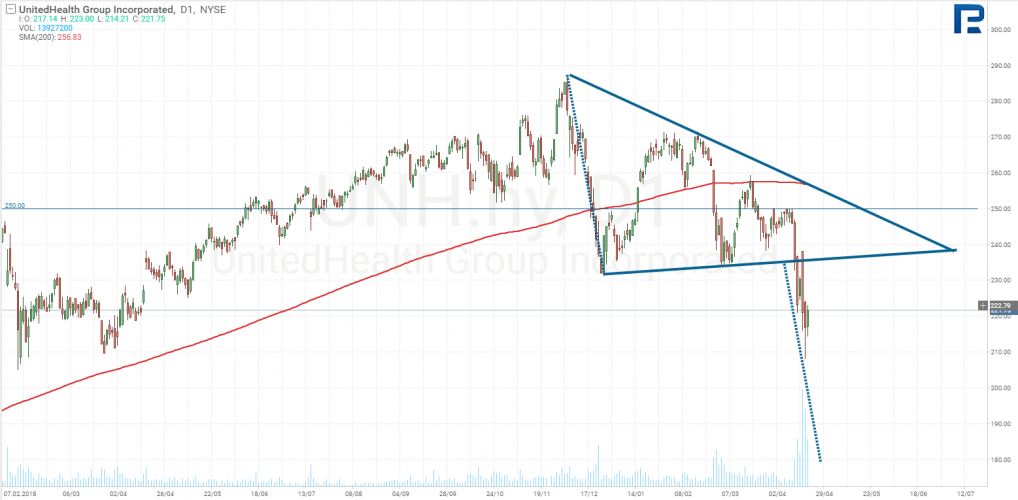
Technically, the stock may go down to reach $180, even though the recent earnings report beat the expectations.
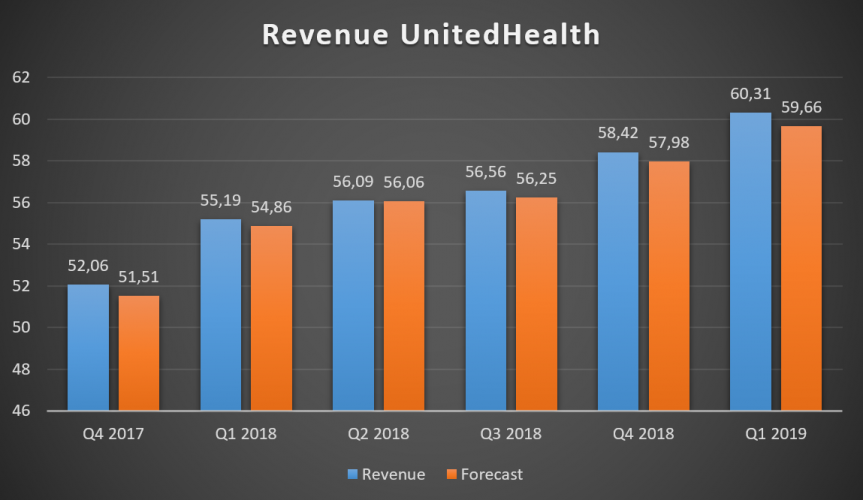
Market reaction
With the possible drug regulation coming in, the pharmaceutical companies followed their insurance counterparts; thus, Pfizer (NYSE: PFE) lost 6.84% over a week, Merck&Company (NYSE: MRK) plunged by 8.33%, while Eli lilly and Company (NYSE: LLY) got down by 7.95%.
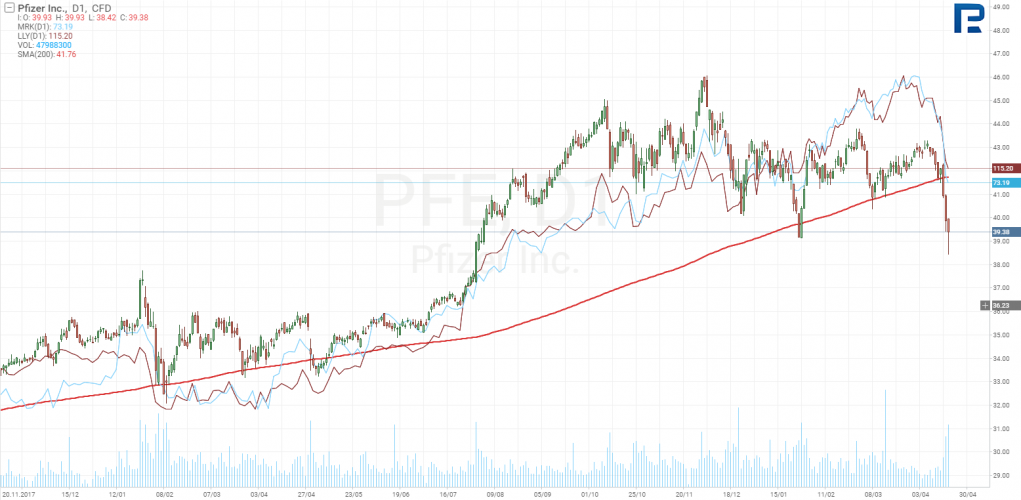
Overall, the healthcare sector had lost 5.50% by the end of the week.
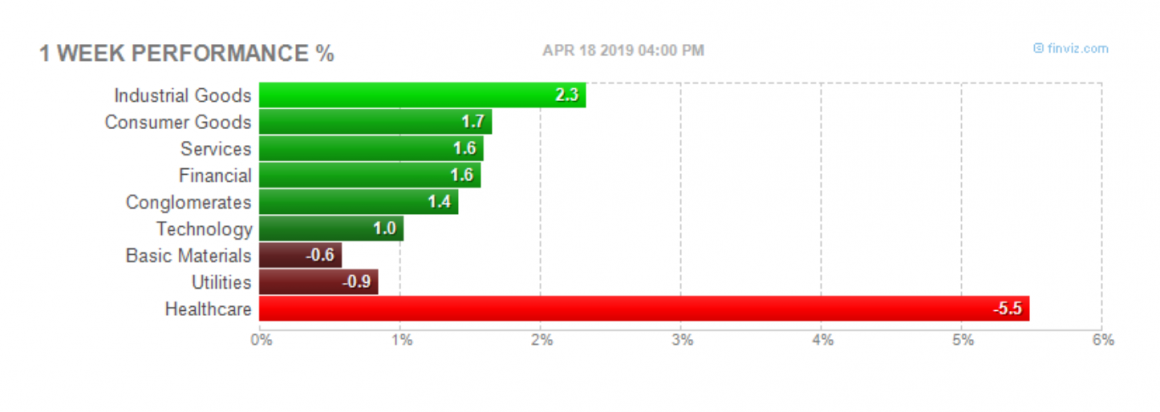
The investors might have been too much in a hurry, as no laws or regulations have been passed yet. In order to get it all work, Sanders will have to win the elections first, and the earliest that could happen is in late 2020. Besides, even if this is the case, Sanders will have to face the battle against the pharma and insurance companies. Both Obama and Trump already tried to introduce something similar, but both failed just because the big business is still here to stay. This way, what Sanders is saying now is just talk, and he is only probably doing it in order to have something to base his election campaign upon.
Conclusions
Nothing is yet for sure. When the stocks went down, the volume increased, which means the investors are still interested in those companies; moreover, the quarterly earnings are quite fine. On the other hand, however, the companies are likely to be under pressure right until the elections are over, and few are those who can tolerate such a strong and long term risk.
The S&P500 is near its highs and needs a correction, while the market needs precise information on who is going to be the next president.
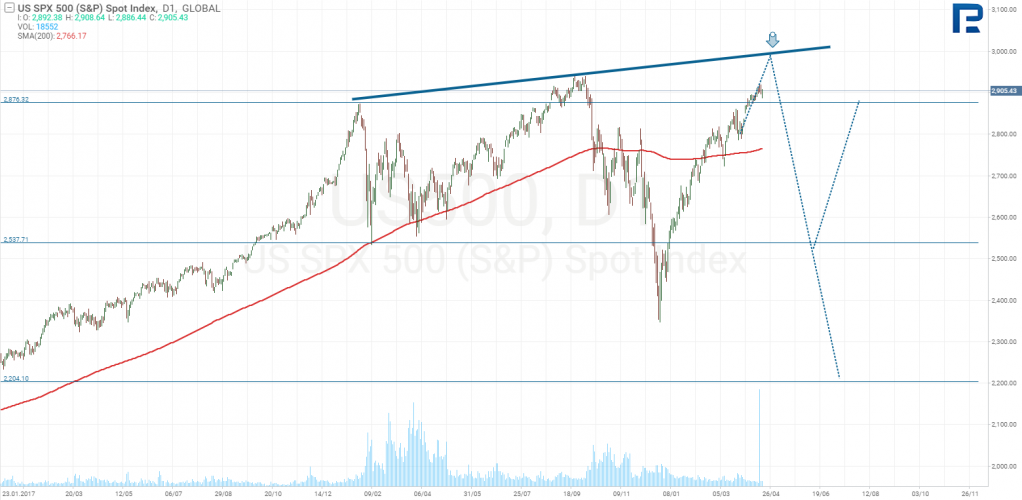
The healthcare sector is thus likely to stick to the negative scenario, which means the prices will be getting better for buying in the future.







